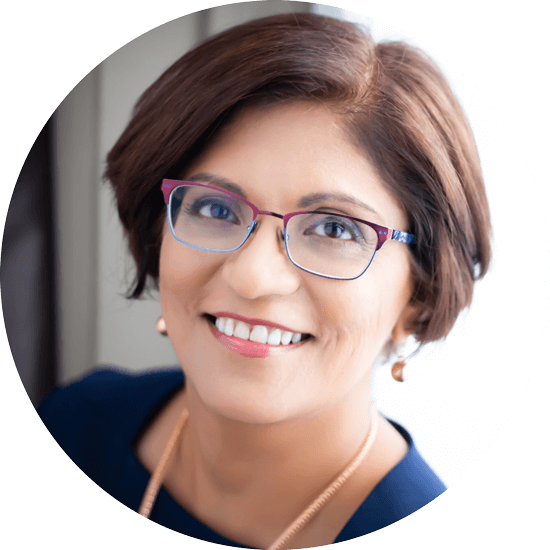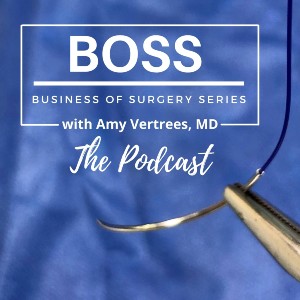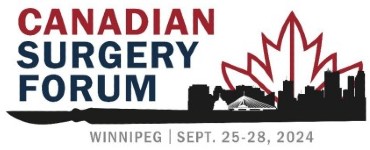What is to give light must endure burning.
—Viktor Frankl
Dr. Geeta Lal is a board-certified General Surgeon (both USA and Canada) with advanced Fellowship training in Endocrine Surgical Oncology. She is also a tenured Professor of Surgery with a cross-appointment in Pediatrics at a major academic medical center. Dr. Lal has spent the last 20 years practicing Endocrine surgery and has extensive experience in thyroid and parathyroid surgery, including re-operative surgery and pediatric thyroid cancer. She is also involved in teaching surgical residents and medical students, both in the operating room and clinics.
Dr. Lal has served in many different roles throughout her career, including being the Co-Leader of her cancer center’s Endocrine Multidisciplinary Oncology Group and heading an NIH-funded basic science laboratory focused on the role of the Extracellular Matrix 1 (ECM1) gene for many years. She also served as the Associate Chief Quality Officer for the Adult Inpatient Services at her hospital till July 2022. Dr. Lal continues to perform clinical research and has presented and published her work extensively.
1991: B.Sc. (Biology), Summa Cum Laude, McMaster University, Hamilton, Ontario, Canada
1995: M.D. (with Honors), University of Toronto, Toronto, Ontario, Canada
1997: M.Sc., University of Toronto, Toronto, Ontario, Canada
2001: General Surgery Residency, University of Toronto, Ontario, Canada
2003: Endocrine Surgery Fellowship, University of California, San Francisco, California
I first experienced a throbbing pain in my left jaw and face approximately 9 years ago while caregiving for my mother who was undergoing palliative chemotherapy for recurrent cancer. A well-meaning oral surgeon I saw diagnosed myofascial temporomandibular dysfunction (TMJD) from “stress and teeth grinding” and proceeded to advise soft foods, muscle relaxants and non-steroidal anti-inflammatory medications. That episode resolved after a few weeks and aside from some intermittent discomfort, I did reasonably well.
However, things flared up again about 5 years ago during a particularly stressful time in my life. Although the pain was similar in location, this time, the usual measures weren’t helping, and as the days and weeks wore on, it extended to my head, neck, shoulder, and upper back – and it refused to go away.
My journey to feeling better has involved many imaging studies, specialist consults, and treatment modalities. It took me a long time to understand that no specialty “owned” myofascial pain and I spent countless hours researching treatments and providers, in addition to advocating for myself.
It was only while working with experienced physical therapists that I realized that a major contributor for TMJD was the exaggerated head-down posture I had held for many hours operating with loupes during the previous 12 years of my career. They also pointed out that the TMJD was a 4th level compensation – a culmination of many layers and years of injuries (both at work and outside) that I had pushed through.
As a scientist, I was driven to take a deeper dive into the injuries faced by surgeons during their careers. I was appalled to discover that musculoskeletal (MSK) problems have been reported in surgeons of almost every specialty. Not surprisingly, only a small proportion of surgeons report their symptoms or seek treatment for them.
However, this doesn’t diminish their impact as MSK pain has been shown to correlate with both professional satisfaction and burnout, and the reason many surgeons choose to retire early. To be honest, at times, I contemplated quitting my much-loved career due to the constant pain. It was also keeping me from enjoying things I loved to do outside of work and my relationships with family and friends.
There is little to no awareness about WRMSD among surgeons. We don’t receive any specific training regarding optimal operating room ergonomics, how to sustain our physical wellbeing for the duration of our careers or even what to do if we’re injured. Most surgeons are so used to pushing through illnesses and injuries that they aren’t familiar with practical issues like FMLA allowances or the role of Disability and Workman’s compensation in our line of work.
As my symptoms improved, I resolved to improve the situation not only for other surgeons, but also for surgical trainees. The first step was increasing awareness of the issues related to poor ergonomics via numerous presentations and panel discussions. I also initiated an Ergonomics curriculum at my institution and published our experience.
However, I quickly learned that sharing my own experience with WRMSD allowed others to share theirs. This, in turn, inspired me to establish a Surgical Ergonomics Interest Group (@SurgErgoGroup on Twitter) for other like-minded surgeons interested in changing the culture of our profession and developing solutions to counteract the causes and impact of poor ergonomics on surgeons’ lives. Together our group has worked to create a Surgical Ergonomics module for SCORE, which is a structured program for self-learning used by many general surgery programs across the country.
But what about surgeons who are currently several years into their practices and now faced with WRMSD? This is where coaching plays a key role. While working with a coach is a very familiar practice in business and athletics, it is only recently gaining a foothold in surgery – as an innovative approach to continuous professional development and performance improvement throughout the continuum of practice.
Peer coaching, in particular, has been found to be very valuable for surgeons in independent practice. I see surgical coaching as an important tool for individual surgeons to enhance their intraoperative performance from an ergonomics standpoint and thereby enhance their clinical performance, well-being and consequently, quality of patient care.
To learn more about how I can help you, contact me today.
Dr. Lal has shared her knowledge regarding surgical ergonomics at the following venues:
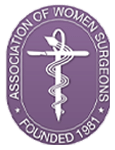
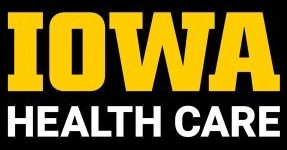

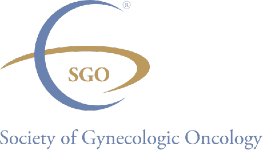
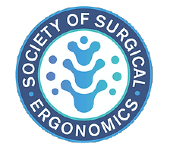

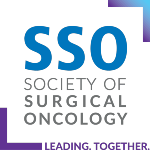
What others are saying about Dr. Lal
I was fortunate enough to have Dr. Lal conduct a webinar for the Section for Women in Otolaryngology. Her passion for and expertise on the topic of surgical ergonomics were very evident and the webinar was very well received by our group, inspiring fruitful discussion and plans for action.
Working under the surgical microscope I often find I am sitting in awkward positions sometimes for hours. That in addition to awkward positions working on a laptop computer resulted in shoulder pain that I struggled to sort out. A few simple suggestions from Dr. Lal and Ms. Miller resulted in much better ergonomics both at work and at home, and the shoulder discomfort has since resolved. Ergonomics coaching should be instituted in our training and in our daily practice to improve surgeon comfort and longevity.
As the scientific program chair for the 56th Annual Southwestern Gynecologic Assembly (SGA) Annual meeting, I was fortunate to recruit Dr. Lal as a speaker on this important topic, applicable to all surgical fields including gynecology. Her talk on surgical ergonomics was phenomenal, engaging, and Dr. Lal was effective in not only increasing awareness among OBGYNs, but provided resources to improve ergonomics in the operating room that was applicable to pelvic surgery. She was so great to work with and I found her presentation to be extremely impactful. I would highly recommend her as a speaker for all surgeons interested in surgical ergonomics, regardless of specialty.
Geeta Lal, MD is an engaging speaker who has presented at several of our surgery and oncology-related conferences/nursing classes. She displays confidence and poise during presentations. Dr. Lal works to connect with the specific audience, always treating them with respect, and encouraging participation and questions. Her presentations are always polished and delivered with sincerity and enthusiasm. Dr. Lal always stays focused on the presentation topic and is energetic and empowering in her style of delivery. I would highly recommend Dr. Lal as an effective and skilled speaker.
I have worked with Dr. Lal on several presentation projects — and I can say without question that she is one of the most engaging speakers — someone who speaks with authority but also from the heart. She brings depth of knowledge to her audience, as well as humanity from her own lived experience. It has been both a pleasure and an inspiration to work alongside her.
I have been fortunate to listen to Dr. Geeta Lal’s thought-provoking talks on Surgical Ergonomics at the Puget Sound Chapter of Human Factors and Ergonomics Society (HFES) Symposium (in 2020) and the HFES Healthcare Symposium (in 2021). Her passion and dedication to making Surgeons’ voices heard in addressing ergonomics-related issues, and human centric-design is phenomenal.
Dr. Lal is a dynamic and engaging speaker. I remember becoming very interested in a subject—ergonomics—that I hadn’t thought much about before Dr. Lal gave a talk on it. Her knowledge of the data and ability to pull the audience in and share her passion for a subject was impressive. Since then, I’ve paid close attention to aspects of my positioning in the operating room, and I’ve noticed exact points from her presentation have improved my cases.
I am grateful to have gone through the video-based ergonomics coaching with Dr. Lal [and Dr. Miller]. Although I was skeptical going into it, Dr. Lal thoughtfully analyzed video of me in the OR and provided practical, easy-to-implement strategies to help improve my symptoms in a personalized toolbox.
As a colorectal surgeon doing long cases deep in the pelvis, I am optimistic that I will have less aches and pains in the future. Not only did she [they] help me in the OR, but after sending pictures of my workstations in the hospital, clinic and at home, she [they] helped me implement some solutions in those areas, as well.
I only wish I had this coaching early in my career before I had issues.
I found the surgical ergonomics coaching by Dr. Lal tremendously useful. Her approach is very systematic and extends from objective assessment of operative videos to evaluation of one’s non-clinical working environment.
The interventions she recommends are specific, practical and incremental, with the goal of creating not just new habits and solutions but also fostering a constant awareness of one’s own ergonomics.
As a medical educator, Dr. Lal’s talk is a must for any trainee. As a surgeon, Dr. Lal’s talk has altered my practice. Speaking to the entire Surgical Foundations roster of residents will plant the seed and the skills for residents early in a surgical specialty to protect their health and advocate for themselves. Dr. Lal is a compelling speaker and her program should be included in every surgical curriculum.
We were very fortunate to have Dr. Lal as keynote speaker at our first multidisciplinary Grand Rounds on Injury Prevention and Ergonomic Optimization. Dr. Lal highlighted the ergonomic challenges impacting surgical safety, quality and patient outcomes and discussed ways to proactively reduce the risk of MSK injuries in the operating room.
Her message was very clear and compelling: injury prevention requires coordinated and sustained individual and institution-level ergonomic improvements that in turn benefit patient care and physician wellbeing.
It was great having Dr. Lal’s team give Grand Rounds and conduct a half-day Ergonomics workshop. The faculty and residents loved the workshop and the feedback was incredibly positive. At an institutional level, this sensitized both the faculty and leadership to this important issue.
I’m a pediatric neurosurgeon who, like many of my colleagues, have been suffering from pain after long surgical procedures. I found Dr. Lal’s website and lecture to be immensely helpful and I only wish that I had learned about her sooner!
I asked her to come give a talk for our Surgery Department’s grand rounds and it was tremendously well-received by our surgeons and advanced practice providers who have reached out to thank me for having her share her knowledge and experience.
Dr. Lal is an excellent speaker who is knowledgeable and passionate about surgical ergonomics. Her two presentations at the Ontario Association of General Surgeons (OAGS) Annual General Meeting in November 2022 showcased her genuine nature, and her desire to promote wellness and longevity in one’s surgical career.
She is well prepared, her delivery is clear, and promotes kind introspection of our work environments, inspiring an openness to consider small but impactful modifications. Dr. Lal has inspired me to advocate for dedicated ergonomics education for all residents in our training program.

